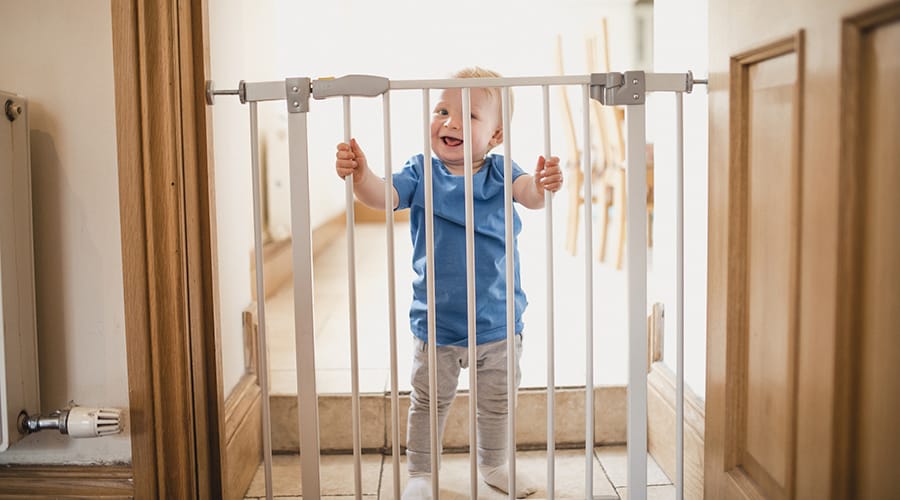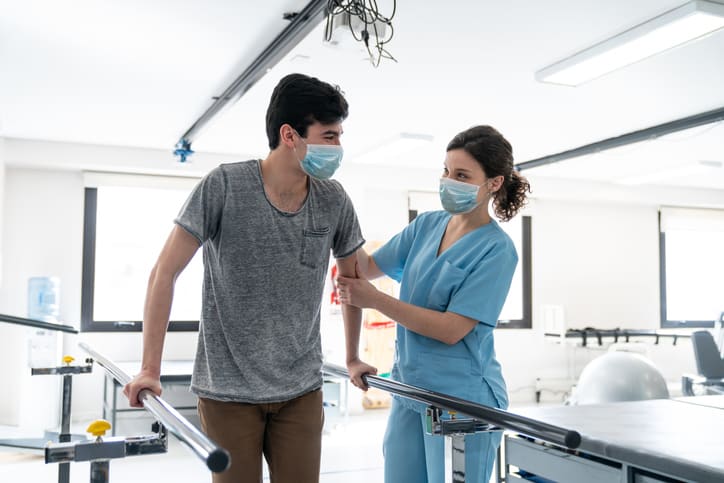
What Healthcare Professionals Need to Know
Fifty years ago, a young attorney published a book that shattered the automobile industry and changed the way Americans viewed consumer product safety. That man was Ralph Nader. His book, Unsafe at Any Speed, accused the automobile industry of “failing to make cars as safe as possible.” An entire industry began to change.5
Even the book’s harshest critics acknowledge that Congress was forced to take notice following the actions of one man. Regulations followed that made the automotive industry safer and more competitive as a result of this publication. The National Traffic Safety Administration was formed, an agency whose sole mission was to save lives, prevent injuries, and reduce crashes.
Fast forward fifty years, and Congress is in a period of rapid deregulation. What was initiated fifty years ago has been undergoing a process of unraveling. Nowhere is this more apparent than in the arena of consumer safety. Product recalls are in a rapid decline, and the Consumer Product Safety Commission, once known as being America’s watchdog for safety, has been lagging in initiating or forcing product recalls.
What does this mean for healthcare professionals? It could mean we need to become advocates when we see pediatric deaths related to products that are deemed unsafe. We may need to warn parents that incidents have occurred if/when we know products have had complaints or a recall has not yet been forced by government. For example, nurses may remember when toddlers began dying from IKEA dressers by climbing on them and having the dresser fall on top of them, inadvertently suffocating the child by the weight of the product. IKEA has recalled millions of products, but not all the dressers.
In 2017, another toddler died. His mother never knew the dresser she purchased for her son had already killed twin boys. Everything she purchased for her son, every action she had taken to prepare for her son’s birth had been carefully wrought. She was devastated.
When government is deregulated, as has happened with the CPSC (Consumer Product Safety Commission), fines to companies that do not meet minimum consumer safety standards begin to decline, and prompt regulatory action can appear stalled. While smaller government in general appeals to many American taxpayers, there is a risk to consumer safety, whether it is lagging oversight on Boeing 737’s, or stalled recalls on baby rock ‘n’ play sleepers or jogging strollers.2
Once human lives have become involved, as with the IKEA dressers, the story of recalls and consumer “fixes” can seem heartbreaking. According to a consumer rights group called Public Citizen, the last two years of the Obama administration logged 64 fines against corporations for enforcement action (when consumer safety standards were not met). In the first two years of the Trump administration, only 35 such fines have been levied.1
But about the dressers? What happens to a product if it IS recalled? In 2016, IKEA recalled 29 million of its dressers, the biggest furniture product recall in U.S. history, but many households missed the message. Consumers could return the product or fasten their dressers to the wall with attachments. However, the disasters weren’t limited to IKEA. A December 2018 CPSC report estimates that 14,000 children were injured from tip-over accidents, including furniture, TV’s, and appliances, concluding that one child died approximately once every TWO weeks from such events.1
One issue worth noting is this: the first IKEA dresser death involving an infant occurred in 1989. The product involved wasn’t recalled from the market until 2016, and yes, more infant deaths occurred in the interim. So far, $50 million in settlement funds is being paid to victims.3
Unfortunately, dressers have only been a small slice of the problem. Earlier this year, I researched the dangers of two infant products: UK’s Britax BOB jogging stroller (with an appalling history of broken bones, gnashed faces, and spontaneous accidents), and the Fisher-Price Rock ‘n’ Play Sleeper, a product that by April of this year had been involved in > than 10 infant deaths!3
The BOB jogging stroller has been involved in more than 200 accidents with over 100 adults and children suffering injuries including broken bones and lacerations when the front wheel becomes spontaneously dislodged while in use. Unfortunately, Britax has lobbied very effectively on Capitol Hill, placing a lobbyist specifically in Washington to manage their concerns.7
Britax was sued to force a recall, but they settled. Instead, they placed a safety video on YouTube, which by March of this year had been watched by a total of only 195 viewers. What they didn’t do was recall the BOB jogging strollers. Not yet. They have, however, offered a safety adaptor online for all BOB strollers in use, to be placed on the front wheel. BOB jogging strollers, however, are still available for purchase. It is in fact on sale for the 4th of July at major retailers.7
The Fisher-Price Rock ‘n’ Play Sleeper is another matter entirely. After 10 infant deaths had taken place (from infants too young to right themselves after twisting in the device and suffocating), parents were clamoring for a recall. But the CPSC felt that a recall was not warranted. They issued a Safety Warning instead. The warning wasn’t enough to protect consumers. Word just doesn’t travel fast enough, especially when the product is still available on store shelves, being purchased by friends of expectant mothers, and gift-wrapped for baby showers.
Days after the safety warning was issued, a Consumer Products investigation connected the Rock ‘n’ Play sleeper to more than 30 infant deaths since 2009! Within one week after the safety warning was issued, a recall of 4.7 million Rock ‘n’ Play Sleepers was initiated. A barrage of lawsuits began shortly thereafter.4
The first lawsuit was filed by the Mundys. The recall, they say, came too late to save their infant daughter, who died within minutes after being placed into the Rock ‘n’ Play Sleeper. The sleeper, experts say, causes death or injury to infants because of its defective design. Although infants can turn or twist their bodies slightly, they are not able to right themselves and are therefore unable to breathe in the sleeper. This may be missed by parents or family members if infants are turned slightly away, not facing forward, where the presence of a cyanotic face would be quickly seen and acted upon.6
What does this mean for healthcare professionals?
It means they need to pay more attention to the environment in which we live and work. Do we prefer smaller deregulated government? Many of the CPSC rollbacks date back to the days of Ronald Reagan, and defunding has continued to occur. If so, consumers need to take on a bigger role in advocating for product safety and recall.
It may be time for nurses, in particular, to assume more accountability by becoming product watchdogs, by reading product safety concerns online before buying that shower gift or talking up a jogging stroller if you haven’t pulled the product history.
Additionally, it may be time for another pioneering event in U.S. history. If there is another Ralph Nader hidden somewhere waiting to make a powerful contribution to nursing, this could be the time to step up.
Infant lives and safety ultimately may depend on it.
Infant Safety Footnotes
- Cnn.com “Trump wants radically less government. Here’s what that looks like.” Wolf, Z. June 15, 2019.
- Fastcompany.com “IKEA’s killer dressers and America’s hidden recall crisis.” Schwab, K.-14-19.
- Goodhousekeeping.com “Another child has died after an IKEA dresser tipped over.” Picard, C. Oct. 20, 2017.
- Goodhousekeeping.com “Everything you need to know about the 2019 Fisher-Price Rock ‘n Play Sleeper and Kids II Rocking Sleeper Recalls.” Rothman, R. June 17, 2019.
- Nytimes.com “50 years ago, ‘Unsafe at Any Speed’ shook the auto world.” Jensen, C. Nov. 26, 2015.
- Usatoday.com “Class-action lawsuits filed against Fisher-Price over Rock ‘n Play infant deaths, and recall.” Tyko, K. April 23, 2019.
- Washingtonpost.com “After hundreds of crashes, this Britax jogging stroller faced recall. Then Trump stepped in.” Frankel, T. April 2, 2019.






